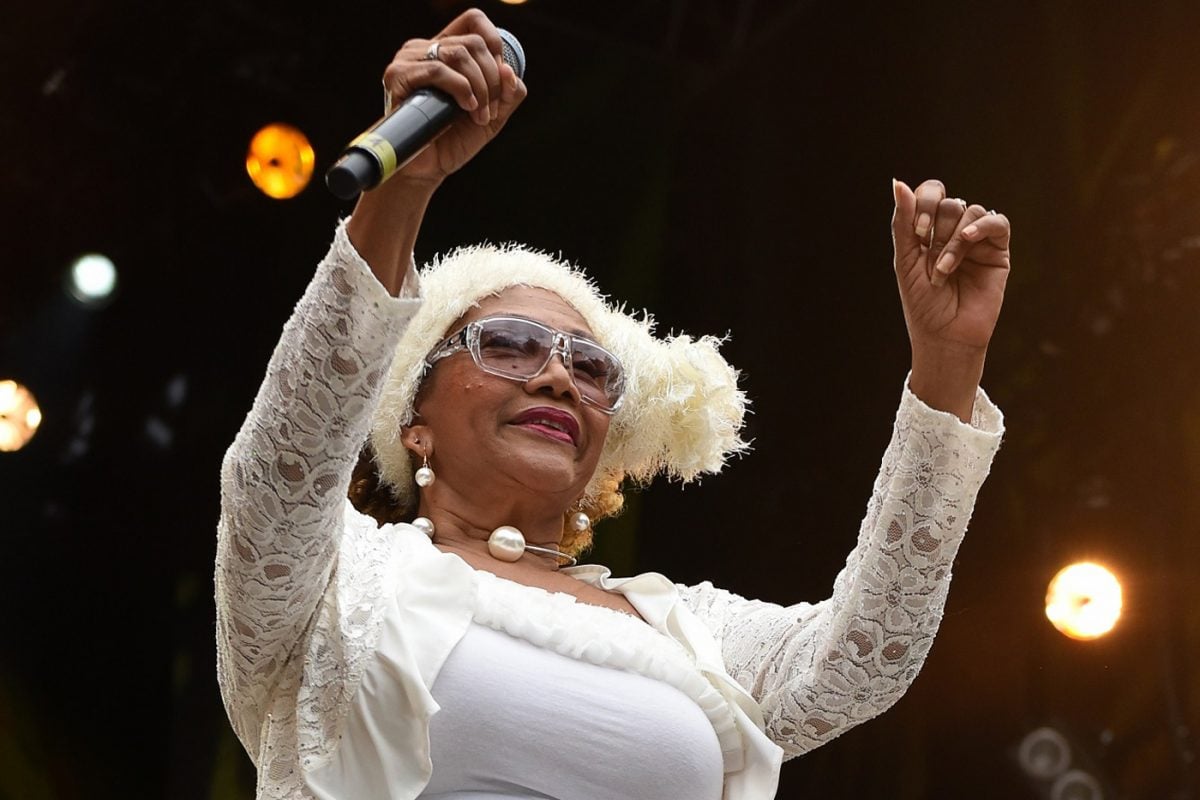Marcia Griffiths Sets Record Straight About Original Version Of “Electric Boogie” Hit

Reggae icon Marcia Griffiths has sought to set the record straight regarding the genesis of her mega-hit song Electric Boogie, which she says has been incorrectly described as being a cover version done by her, by many local and international media, including Essence Magazine, over the years.
But, according to Marcia, the Electric Boogie was first recorded as a duet by herself and her childhood friend Bunny Wailer in 1983, and later propelled by music mogul Chris Blackwell of Island Records in 1989. Bunny was also the writer and producer of the original song but afterward also did a second version of which he recorded in solo form. The vinyl record of the 1983 original version clearly denotes Marcia as singer and Bunny Wailer as producer, arranger and background vocalist.
https://www.youtube.com/watch?v=o7KNAQFr-so
Similarly to what she told The Gleaner newspaper during an interview in May 2019, Griffiths told entertainment journalist Anthony Miller in a recent interview on Television Jamaica’s The Entertainment Report that it all began with a rhythm box which she bought in Canada, whilst on tour with the I-Threes in the 1980s, when each of the back-up singers received 700 Canadian dollars as their performance pay.
“With my 700, I went downtown, saw this rhythm box, fell I love with it when I started playing it in the store. It was like for 400 dollars and I bought the box; it’s like a keyboard. I took it to Jamaica – and of course Bunny and I go way back from kindergarten – and I showed him the box and I showed him the sounds, the different beats – and the repeater was what really grabbed me. And he laid one of the beats from the rhythm box with the piano repeater sound, took it to Portland; came back the following day with the song, and he called in Sly and Robbie to do a overdub on what he had recorded form the rhythm box,” Griffiths, now 71 explained.
“I am the original singer; he (Bunny wailer) is the writer for the song and the producer – from my little rhythm box. So I didn’t jump on anything that was done before. We did it first,” she added.
According to Griffiths, she was on tour on the US West Coast when she got a call from a colleague who said that the song was taking off and that a “dance had been put to it”.
“So by the time the tour got to Washington, I was forced to learn the dance and perform it in my set… It was summer time then and I was knocked out when I saw the masses doing this dance,” she said.
“So I tried to find Bunny to say: ‘Bunny, let’s do a video right away and get the song out because the both of us did the song originally; he did the rap… While I was searching for Bunny to do the video and couldn’t find him, when I finally came to Jamaica and I saw his car and I went to tell Bunny to say: ‘listen, let’s do this video, he was already doing a video and already recording another version for himself,” she explained.
Electric Boogie became her biggest hit after Chris Blackwell suggested that she should do a remix, which later rose up the Billboard charts and also became her most requested song.
“When I contacted Chris, Chris said big companies not gonna promote singles, so let’s do a remix. So that’s when we went to the studio with the Miami Sound Machine and we did the remix,” Griffiths reminisced.
She marveled at the fact that the song and the dance has outlived so many other dance songs that came before and after it, noting that it was the Electric Slide dance which was created by a group from Washington, that made the song ultra-famous.
“The dance was what made it into what it is today… this dance has outlived the Madison, the Bus Stop the Cha-cha, the Macarena, name it. All the weddings never complete unless they have done the electric slide. This wasn’t even a song which was a message song. This was just a happy song, party song, a fun song everything was spontaneous. We never sit on anything,” she explained.
“There is nowhere in the world that I could go and perform and not do the electric slide. It’s international; it’s worldwide and the song brings people together. You do not need a partner to do this dance,” the Feel Like Jumping artiste added.
When asked how she benefited from the song in terms of royalties, Marcia said for a long period, she did not gain even one red cent.
“That’s a million-dollar question, because apart from performances that I do because I have songs to perform on my catalogue, that particular song – nothing was coming from that song. Nothing. It was out of the goodness of Chris Blackwell’ heart; he said it was unfair that I am not earning a dime,” she said.
“So because I said to him: ‘It’s not fair to me to not earning nothing – I mean nothing – and they made some arrangement for me to get some artiste royalty,” she said.
